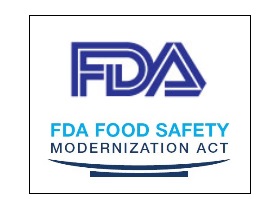By: Hilary Thesmar, PhD, RD, FMI Vice President, Food Safety Programs, Food Marketing Institute and Stephanie Barnes, Chief Regulatory Officer, Food Marketing Institute

Compliance for the cornerstone rule under the Food Safety Modernization Act (FSMA) begins on September 19, 2016. Hopefully this does not come as a surprise and simply as a gentle reminder to complete your Hazard Analysis and Preventive Control Plans for your distribution centers, warehouses, central kitchens, packing plants, manufacturing and processing facilities.
The Preventive Controls rule embodies one of the basic pillars of FSMA, which is to prevent the contamination of food and to prevent foodborne illness from occurring. Prevention starts with strong good manufacturing programs (GMPs) followed by conducting a rigorous hazard analysis to identify and evaluate any known and reasonably foreseeable hazards. With a complete hazard analysis, preventive controls are assigned to control the identified hazards. Like many regulations, FSMA is very dependent on recordkeeping and documentation.
On August 23, FDA issued the first portion of draft guidance for the preventive controls for human food rule, which included chapters on the food safety plan, hazard analysis and preventive controls. Agency guidance (draft or finalized) provides insight into an agency’s current thinking on a regulatory topic but should not be considered binding. FDA indicated that they will be releasing fourteen additional chapters on preventive controls guidance over the next several months. FDA also extended certain compliance dates on several FSMA provisions, including requirements related to food contact substances under the foreign supplier verification rule. FMI and other retail associations have been working closely with FDA to seek clarification on the food contact substances issue, and we look forward to continued engagement with the agency as they consider how to best address our concerns.
September is the first compliance date for only one of seven major regulations; the next few years will be very busy in the food industry. FSMA was the most significant change to the Food Drug and Cosmetic Act in over 70 years; as a result, we are dealing with some of the most significant regulatory changes that we have seen in our lifetimes.
Although FSMA compliance can seem overwhelming, FMI has experts on staff and has developed many resources to help with FSMA implementation and compliance. FMI has developed a sample hazard analysis for the preparation of a retail distribution center food safety plan, and we are working to update and provide a sample plan that our members can use to help ensure they are in compliance. Additional FSMA related information and resources can be accessed through FMI’s website at www.fmi.org/FSMAResources. There are also interesting articles developed by Oliver Wyman and FMI about FSMA compliance in the Boardroom journal available online at www.fmi.org/Boardroom. Please do not hesitate to call us if you need assistance or have questions on developing your program or understanding where to start.


 Industry Topics address your specific area of expertise with resources, reports, events and more.
Industry Topics address your specific area of expertise with resources, reports, events and more.
 Our Research covers consumer behavior and retail operation benchmarks so you can make informed business decisions.
Our Research covers consumer behavior and retail operation benchmarks so you can make informed business decisions.
 Events and Education including online and in-person help you advance your food retail career.
Events and Education including online and in-person help you advance your food retail career.
 Food Safety training, resources and guidance that help you create a company food safety culture.
Food Safety training, resources and guidance that help you create a company food safety culture.
 Government Affairs work — federal and state — on the latest food industry policy, regulatory and legislative issues.
Government Affairs work — federal and state — on the latest food industry policy, regulatory and legislative issues.
 Get Involved. From industry awards to newsletters and committees, these resources help you take advantage of your membership.
Get Involved. From industry awards to newsletters and committees, these resources help you take advantage of your membership.
 Best practices, guidance documents, infographics, signage and more for the food industry on the COVID-19 pandemic.
Best practices, guidance documents, infographics, signage and more for the food industry on the COVID-19 pandemic.
